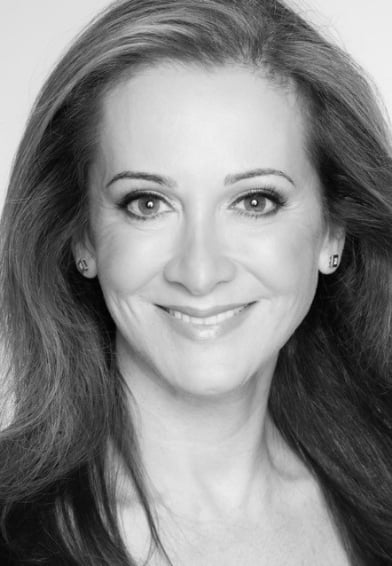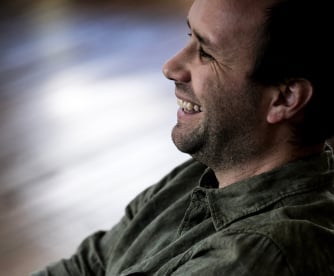At the close of 2015, we lost one lost one the world’s finest playwrights in Brian Friel, and also one of the most self-effacing. Despite his reputation as Ireland’s greatest contemporary dramatist, there are limited interviews to be found with the scribe. He was famously reclusive when it came to the media and deeply modest about his own talents. In a rare talk he gave on BBC radio in 1972 entitled Self-Portrait, Friel had fun playing interviewer to himself:
Which of your plays are your favourite?
None of them.
Which of your stories?
Most of them embarrass me.
Do you think the atmosphere in Ireland is hostile or friendly to the artist?
I’m thinking of my lunch.
Suffice to say, Friel was an artist who let his work speak for himself, and what an extraordinary and diverse body of work that is. In a career spanning four decades, Friel scripted over 30 plays, always balancing his sharp observations with humour and warmth.
Bernard Patrick Friel was born near Omagh, County Tyrone, in Northern Island, on January 9 in 1929. He never strayed far from these roots all his life. The majority of his plays were set in Ballybeg (from the Irish word for ‘small town’), a fictitious town in Donegal where Friel spent his holidays as a child. It was a setting that was local and specific, but also universal – as evidenced by the way that Friel’s plays have found a home on stages all over the world. Often through the prism of family, the playwright explored themes of cultural identity and social change, the desire for self-realisation and transcendence, and the slippery nature of language and memory.
Friel grew up the son of a Catholic schoolmaster and a postmistress, both of whom were staunch nationalists. Following a brief unhappy period studying for the priesthood, he followed in his father’s footsteps, and worked as a teacher throughout the 1950s. One of the most courageous decisions Friel made was his decision to give up teaching and dedicate himself to full-time writing in 1960, a particularly brave move given he was a 31-year-old married man with a growing family at the time. It was a decision that was perhaps made easier by the fact that by the mid-fifties he was regularly publishing short stories in a handful of American magazines, and had secured a contract with The New Yorker.
By the early sixties, however, Friel was tiring of writing short stories and had turned his hand to plays. A pivotal moment came in the playwright’s early career when, in 1963, he was invited to the newly opened Guthrie Theater in Minneapolis by its founder and famed theatre director, Tyrone Guthrie. He had been impressed by Friel’s short stories and saw promise in his earliest plays. It was here spending time in the rehearsal room that Friel decided on a career as a playwright. Of the time, he said: “I learned a great deal about the iron discipline of theatre [and] those months in America gave me a sense of liberation – remember, this was my first parole from inbred, claustrophobic Ireland – and that sense of liberation conferred on me a valuable self-confidence and a necessary perspective.”
His time spent at Guthrie Theater proved fruitful, and his next play Philadelphia Here I Come!, was his most assured by far, premiering to rave reviews at the Dublin Theatre Festival in 1964. The play centred around an emotionally conflicted young Irishman emigrating to America, but was so striking because the protagonist was split into “private” and “public” selves, with two different actors playing the role. The work travelled to Broadway in 1966 where it was nominated for Best Play at the Tony Awards. It also very quickly cemented Friel’s reputation as an innovative playwright prepared to explore painful social realities.
Friel followed Philadelphia Here I Come! with The Loves of Cass McGuire, which can be seen as complementary to its predecessor, about a 70-year-old woman returning to Ireland after 50 years in America. Its journey to stage in 1966, however, proved a traumatic experience for the author. The play was to premiere in New York, but during its rehearsals, the script was significantly altered and a furious Friel threatened legal action. While Friel’s original script was reinstated, it marked the beginning of the playwright’s conflicted relationship with the theatre director, which he once deemed “a bogus profession”, solely responsible for ensuring actors appeared on time and knew their lines. When asked in a 1968 interview what he thought the relationship between a playwright and director should be, Friel replied: “I’m afraid I’m very arrogant about this … My belief is absolutely and totally in the printed word, and that this must be interpreted precisely and exactly as the author intended.”
In the 1970s, The Troubles in Northern Island erupted and there was an expectation that the artists of the time would draw directly from the escalating street violence, but Friel resisted this pressure. He had no intention of making any overt political messages. A rare exception, however, was 1973’s The Freedom of the City, which concerned the fate of three protesters wrongfully killed in the wake of a Civil Rights meetings. The play was a response to the 1972 Bloody Sunday massacre, where Friel himself had been a demonstrator. Friel, however, would later describe the play as “reckless” and “ill-considered”, and his subsequent works – 1975’s Volunteers and 1977’s Living Quarters– would address the violence unfolding in Ireland through a more distanced lens.
While the seventies were a difficult and somewhat isolating decade for the dramatist, Friel enjoyed a particularly creative period in 1979-80, during which he saw the premiere of three of his plays: Faith Healer, Aristocrats and Translations. Faith Healer, the story of a gifted rogue and his tragic entourage, is considered a masterpiece today, but met with mixed reviews when it first opened. Critics struggled with its stark form, which is now considered its genius – it comprises four monologues, with each testimony calling into question what we have heard before. It’s with Faith Healer that Friel expresses most powerfully a theme that has always lingered in his work – that our memories and stories only reveal partial truths about ourselves.
In 1980, Friel founded the Field Day Theatre Company in Derry, along with actor Stephen Rea, with the intention of taking productions on tour in Northern Ireland. Its first production was Friel’s Translations, which became an instant classic. A love story set against Britain’s plan to map Ireland and de-Gaelicise its place names, it reveals the inexplicable connection between language and colonisation. A smash hit on stages all over the world, Translations was followed by the political satire The Communication Cord and Making History about the first Earl of Tyrone.
Friel’s next great success came with 1990’s Dancing at Lughnasa, the playwright’s most autobiographical play based on childhood memories of his mother and four aunts. The play warmly portrays five sisters who, like many of Friel’s characters, feel trapped in their domestic situation – with their hopes and desires erupting in one spontaneous dance sequence that remains one of the most memorable scenes in all of Friel’s work. The Broadway production won the Tony for Best Play and was made into a movie starring Meryl Streep in 1998.
The seventies and eighties may have seen Friel garner a reputation as an author of history plays, but the nineties saw Friel produce three works – Wonderful Tennessee, Molly Sweeney and Give Me Your Answer Do! – which engaged with a contemporary Ireland, though they were less commercially successful. His final original work was The Home Place in 2005, fittingly set in Ballybeg, and again saw the playwright exploring issues of cultural identity in 19th century Ireland.
Beginning in the eighties, Friel also adapted a number of works of Anton Chekhov including Three Sisters and Uncle Vanya, updating the plays to Irish settings. With his own plays about family and subtle characterisations, Friel was often hailed as the ‘Irish Chekhov’, and the playwright has spoken of a kinship with the Russian writer: “The characters in his plays behave as if their old certainties were as sustaining as ever – even though they know in their hearts that their society is in melt-down and the future has neither a welcome nor even an accommodation for them.”
While dedicating over four decades of his life to the art form, Friel remained humble about his own powers as a playwright, and that of the medium itself. He once said: “At the end of any night’s experience in the theatre, all that any writer can hope for is that maybe one dozen people have been moved ever so much or ever so slightly, and that the course of their lives may be enriched or altered by a very fine degree. I don’t believe for one second that a dramatist is going to change the face of the earth.” Friel’s pragmatism is telling, but if his legacy of work is anything to go by, we should be wary of accepting such a statement as the whole truth.
References
Brian Friel: Theatre and Politics by Anthony Roche, Palgrave Macmillan, 2011.
Brian Friel, playwright – obituary, The Telegraph, 2015




































